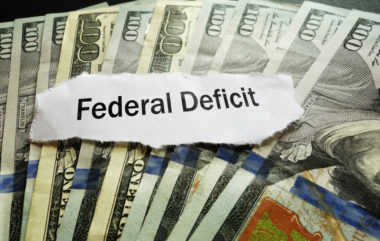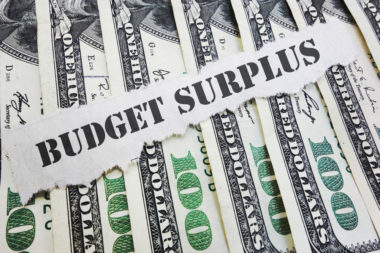An excise tax is a legislated tax on specific goods and services at the time of purchase. From fuel to tobacco and alcohol, there are many products that come with an excise tax. These taxes are intranational, meaning they are imposed within a country’s governmental structure, rather than international taxes, which are imposed when goods or services cross borders.
The government charges excise taxes to wholesalers who provide a particular product; in turn, the wholesaler asks the merchant to cover the cost of the tax. Consumers don’t necessarily see the excise tax in action, but they do feel the impact of excise tax in the form of higher pricing from merchants.
If you provide a product or service subject to an excise tax, this guide will explain how excise taxes work and more information on how to file these types of taxes.
Table of Contents
Federal Excise Tax
Excise taxes are imposed by federal, state, and local governments on goods or services to generate revenue for an entire country. These taxes apply to the sale of goods such as fuel, tobacco, and alcohol, as well as to public services such as the Airport & Airway Trust Fund and the Affordable Care Act.
Excise taxes help the Airport & Airway Trust Fund (AATF) with funding. This organization imposes an excise tax on a number of services related to passenger transport, including:
- Passenger tickets for domestic travel.
- Domestic flights
- International arrivals and departures.
- Purchase of frequent flier or air travel miles.
- “Air cargo waybills.”
- Aviation fuel.
Similarly, the Affordable Care Act imposes a 40% excise tax when the “cost of employer-provided healthcare exceeds a certain dollar limit that changes annually.”
How Is an Excise Tax Different From a Sales Tax?
Excise taxes are primarily for businesses. While consumers don’t necessarily see excise taxes directly, there are certain times when they pay these taxes.
Consumers are responsible for the excise taxes imposed on retirement accounts, which are more widely known as penalties. For example, if you remove funds from an Individual Retirement Account (IRA) before age 59½, a 10% penalty — or in this case, an excise tax — is charged.
Additionally, property taxes are considered an ad valorem excise tax that the consumer pays. This means the tax charged is based on the unit that is sold. In the case of property, taxes differ based on size and location.
Sales tax is applied to a broad range of products and services that consumers buy. Consumers pay sales tax at the time of purchase so that the company selling the product or service can pay the government. Additionally, sales tax varies by state and is based on a percentage of the total price.
How an Excise Tax Works
While excise taxes help state, local, and federal governments generate revenue, it is a fairly small portion because the tax is only imposed on certain products. When compared to what the government makes from income taxes, property taxes, and general sales taxes in each state, the profits from the excise tax are significantly less. In 2018, the government collected a total of $98,556,000 in excise taxes.
As opposed to sales tax, which is based on the total cost of the product or service being purchased, excise taxes are applied on a per-unit basis. For example, the excise tax on gasoline is determined by the number of gallons sold. Many of the excise taxes collected go towards general funds, like highway repair or improvements to airports, or trust funds dedicated to a specific need.
As aforementioned, excise tax generally doesn’t affect consumers, but it can in the case of retirement funds. There is a penalty for removing funds from your retirement account too early, but there is an excise tax if you wait too long to remove funds. After the age of 70½, you could be charged a 50% excise tax on the amount left in your retirement account.
Excise taxes are only charged to certain goods — alcohol and cigarettes are among them. A sin tax is another term for excise taxes that are imposed on these goods to discourage the sale of them. More recently, the government has imposed sin taxes on items including bullets, sugary drinks, and fatty snack foods.
There are two types of excise taxes — specific and ad valorem.
Ad Valorem Excise Taxes
Ad valorem excise taxes are based on the value of the purchase. In most cases, the ad valorem excise tax is based on the retail or wholesale value of the item being sold.
Specific Excise Taxes
Specific excise taxes are based on the quantity purchased. For example, the number of cigarettes sold or the weight of the tobacco being sold determines how much the excise tax is.
Excise Tax Return
Any business that provides a good or service must file an excise tax form. Businesses are required to file excise taxes quarterly each year. The due dates for excise taxes are as follows:
- Q1 — April 30.
- Q2 — July 31.
- Q3 — October 31.
- Q4 — January 31.
Whether you are a large corporation or a small business, taxes must be filed every year. Business owners are required to fill out Form 720 as part of their tax return. While the IRS will accept the paper Form 720, it is easiest to file excise taxes electronically. Doing so may allow for deductions or credits on your business’ annual income tax returns if they are typical purchases for your business.
Excise Tax Examples
Excise taxes are imposed on a variety of products and services, including:
- Cigarettes.
- Tanning Beds.
- Ammunition.
- Alcohol.
- Gambling.
- Sports wagering.
- Gasoline.
- Oil spill liability.
- Truck highway use.
- Aircraft management.
If you have questions about filing your excise taxes, there are ways to contact the IRS for assistance. They can provide you with a copy of your tax transcript or advise you on the best way to file your excise tax Form 720.
Image Source: https://depositphotos.com/





